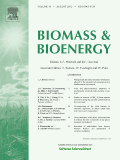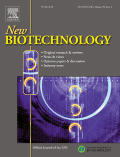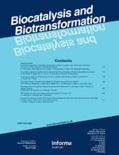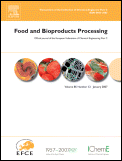
Biotechnology for Biofuels and Bioproducts
Scope & Guideline
Advancing Sustainable Solutions Through Biotechnology
Introduction
Aims and Scopes
- Biomass Conversion Technologies:
Research on various biomass conversion methods, including enzymatic hydrolysis, fermentation, and thermochemical processes to produce biofuels and bioproducts. - Metabolic Engineering:
Application of metabolic engineering techniques to optimize microbial strains for improved production of biofuels, biochemicals, and other valuable products from renewable feedstocks. - Microbial Biotechnology:
Utilization of microbial systems, including bacteria, yeast, and fungi, for the efficient production and transformation of biomass into biofuels and bioproducts. - Enzyme Development and Application:
Investigation and development of novel enzymes and biocatalysts that enhance biomass degradation and conversion processes. - Sustainable Practices and Circular Economy:
Focus on sustainable practices in bioprocessing, waste valorization, and integrating biotechnological solutions into circular economy frameworks. - Systems Biology and Omics Technologies:
Integration of systems biology approaches and omics technologies to gain insights into microbial metabolism and enhance bioprocess efficiency.
Trending and Emerging
- Synthetic Biology and Gene Editing:
The rise of synthetic biology techniques, including CRISPR/Cas9 and other gene editing technologies, is evident as researchers seek to create engineered organisms with enhanced capabilities for biofuel production. - Microalgae and Cyanobacteria Utilization:
Increased research focused on utilizing microalgae and cyanobacteria as feedstocks for biofuels and bioproducts, highlighting their potential in sustainable biotechnological applications. - Integrated Biorefinery Approaches:
Emerging interest in integrated biorefinery systems that combine various feedstocks and conversion processes to maximize resource efficiency and product yield. - Valorization of Waste Biomass:
A growing trend towards the valorization of waste materials, including agricultural residues and food waste, for biofuel and bioproduct production, promoting circular economy principles. - Advanced Omics and Systems Approaches:
The adoption of multi-omics approaches and systems biology to optimize metabolic pathways and improve bioprocesses is increasingly prevalent in recent studies. - Carbon Utilization Technologies:
Research focusing on converting CO2 and other carbon sources into biofuels and chemicals is emerging as a critical area of interest, driven by the need for sustainable practices.
Declining or Waning
- Traditional Fermentation Processes:
Research focused on conventional fermentation processes is becoming less prominent as newer, more efficient methods and engineered strains gain attention. - Lignin Valorization:
Although lignin valorization has been a significant area of research, recent trends show a decline in the frequency of studies specifically aimed at lignin degradation and conversion to value-added products. - Single-Organism Approaches:
Studies focusing solely on single microbial strains for biofuel production are waning as there is a noticeable shift towards co-culture and consortium strategies that enhance bioconversion efficiency. - Basic Biochemistry Studies:
Research papers emphasizing fundamental biochemistry without direct applications to biofuels or bioproducts are becoming less common as the journal leans towards applied and translational research.
Similar Journals

Biochemical Engineering Journal
Advancing the Frontiers of Biochemical EngineeringBiochemical Engineering Journal, published by Elsevier, is an esteemed platform dedicated to advancing research in the fields of bioengineering, biomedical engineering, biotechnology, and environmental engineering. This journal, with ISSN 1369-703X and E-ISSN 1873-295X, has carved a niche for itself since its inception in 1998, boasting a commendable Q2 category ranking in multiple pertinent disciplines as of 2023. The journal's strong impact factor reflects its influence, with Scopus rankings placing it in the top quartiles across relevant fields including Environmental Engineering and Bioengineering. With a focus on both fundamental and applied research, it aims to inform and inspire academia and industry alike by disseminating high-quality studies, reviews, and innovative methodologies. Researchers and professionals are encouraged to explore this reputable journal to remain at the forefront of emerging trends and technologies in biochemical engineering.

ChemBioEng Reviews
Advancing the Frontiers of Biochemical InnovationChemBioEng Reviews is a premier academic journal dedicated to advancing the fields of biochemistry, bioengineering, and chemical engineering. Published by WILEY-V C H VERLAG GMBH, this journal serves as an essential platform for researchers and professionals seeking to disseminate groundbreaking insights and innovations. With a remarkable impact factor and a solid reputation, it is ranked in the top quartile (Q1) across multiple disciplines, including Biochemistry, Bioengineering, and Industrial and Manufacturing Engineering. The journal's comprehensive scope covers the synthesis, analysis, and application of bioengineered solutions, making it a vital resource for anyone involved in process chemistry and technology. With an unwavering commitment to high-quality scientific discourse from 2014 to 2024, ChemBioEng Reviews is not only pivotal for the academic community but also contributes to industry advancements in filtration, separation processes, and the intersection of chemical and biological engineering.

BIOMASS & BIOENERGY
Empowering Research for a Greener TomorrowBIOMASS & BIOENERGY, published by Pergamon-Elsevier Science Ltd, is a premier academic journal focusing on the interdisciplinary fields of biomass and bioenergy research. With its impressive impact reflected in its 2023 Q1 rankings across multiple categories, including Agronomy and Crop Science, Forestry, Waste Management and Disposal, and a solid Q2 in Renewable Energy, Sustainability and the Environment, this journal stands at the forefront of advancing knowledge in renewable resources and sustainable practices. Established in 1991, it serves as a vital platform for researchers, professionals, and students to disseminate groundbreaking studies and innovative findings that shape the future of renewable energy. Though it does not currently offer open access, the journal's high ranking on Scopus, particularly its 95th percentile rank in key agricultural and environmental science categories, underscores its significance in promoting critical discourse and scientific advancements in biomass utilization and energy generation.

New Biotechnology
Unlocking Innovations in BioengineeringNew Biotechnology, published by Elsevier, is a distinguished academic journal focused on the innovative realms of biotechnology and bioengineering. With an impact factor reflecting its strong presence in the field, this journal serves as a vital resource for researchers and professionals in the life sciences, offering insights into cutting-edge advancements and applications in biotechnology, molecular biology, and related disciplines. The journal's open access policy enhances its accessibility, allowing broad dissemination of knowledge and research findings. With a robust set of Scopus ranks placing it in the top tiers of its categories, including rank #36 in Biotechnology and #24 in Bioengineering, New Biotechnology represents a critical platform for scholars aiming to contribute to the ongoing dialogue in these rapidly evolving fields. Since its inception in 2008 and continuing through to 2024, the journal remains committed to fostering innovation and collaboration among scientists dedicated to advancing biotechnological applications, thereby significantly impacting medicine and industry.

CRITICAL REVIEWS IN BIOTECHNOLOGY
Unveiling Groundbreaking Discoveries in BiotechnologyCRITICAL REVIEWS IN BIOTECHNOLOGY, published by Taylor & Francis Ltd, stands as a leading journal in the field of biotechnology, consistently recognized for its rigorous peer-reviewed articles that impact the disciplines of Applied Microbiology, Biotechnology, and Medicine. With an impressive Q1 ranking in these categories and a significant influence reflected in its Scopus rankings—placing it within the top 5% of Applied Microbiology and the top 4% of Biotechnology journals—the journal serves as an essential resource for researchers, professionals, and students alike. Launched in 1983 and extending its coverage to encompass groundbreaking findings through 2024, it provides a rich forum for insightful reviews and innovative research that propel the field forward. Though not an Open Access journal, CRITICAL REVIEWS IN BIOTECHNOLOGY remains a vital point of reference for ongoing developments, critical analyses, and emerging trends, making it indispensable for those seeking to stay at the forefront of biotechnological advancements.

PROCESS BIOCHEMISTRY
Advancing biochemical innovation for a sustainable future.PROCESS BIOCHEMISTRY is a premier journal published by Elsevier Science Ltd, dedicated to advancing the field of biochemistry, microbiology, and bioengineering. With an ISSN of 1359-5113 and an E-ISSN of 1873-3298, this renowned journal is recognized for its impactful contributions, as demonstrated by its Q2 ranking in Applied Microbiology and Biotechnology, Biochemistry, and Bioengineering categories as of 2023. Covering a wide array of topics since its inception in 1950, PROCESS BIOCHEMISTRY serves as a crucial platform for researchers and professionals to disseminate innovative findings and develop new insights in enzyme technology, metabolic pathways, and bioreactor design. Although the journal operates under a non-open access policy, it remains vital for those engaged in cutting-edge biochemical research and development. Located in the United Kingdom, it continues to facilitate scientific discourse and foster collaboration among industry experts and academic scholars worldwide.

BIOTECHNOLOGY AND BIOPROCESS ENGINEERING
Driving Innovation in Bioprocess TechnologiesBIOTECHNOLOGY AND BIOPROCESS ENGINEERING, published by the Korean Society for Biotechnology and Bioengineering, is a prominent journal in the fields of applied microbiology, biotechnology, bioengineering, and biomedical engineering. Since its inception in 1996, this journal has served as a vital platform for researchers and professionals, facilitating the dissemination of cutting-edge research and innovative applications related to bioprocesses and biotechnology systems. With an ISSN of 1226-8372, this journal is ranked within the Q3 quartile across several categories, demonstrating its relevance and impact in the academic community. Although it operates under traditional access modalities, the journal strives to provide quality and timely insights into the advancements in bioprocess technology and microbial applications, fostering a collaborative environment for knowledge exchange. Notably, it is indexed with a respectable presence on Scopus, making it a valuable resource for students and professionals seeking the latest developments in biotechnology. For more details, kindly refer to the Korean Science Technology Center, #704 Yeoksam-Dong, Gangnam-Ku, Seoul 135-703, South Korea.

BIOCATALYSIS AND BIOTRANSFORMATION
Exploring the Frontiers of Biocatalysis and TransformationBIOCATALYSIS AND BIOTRANSFORMATION is a distinguished academic journal published by Taylor & Francis Ltd that focuses on the rapidly evolving fields of biochemistry and biotechnology. Established in 1987, the journal features cutting-edge research that explores the mechanisms and applications of biocatalysis and biotransformation processes, making it a crucial resource for researchers, professionals, and students alike. With an impressive commitment to advancing scientific knowledge, it is currently classified in the Q3 quartile in both the Biochemistry and Biotechnology categories, and Q4 in Catalysis for 2023, underscoring its impact and relevance in the field. The journal is accessible to a global audience, although it operates under a subscription model. Located in the United Kingdom, BIOCATALYSIS AND BIOTRANSFORMATION has contributed significantly to the discourse on innovative methodologies and their applications in various industries, addressing key challenges in sustainable development and environmental safeguarding. By publishing high-quality research, this journal remains a beacon for those probing the intersections of chemistry and biology in catalysis.

FOOD AND BIOPRODUCTS PROCESSING
Bridging the gap between research and practical application in food processing.FOOD AND BIOPRODUCTS PROCESSING, published by Elsevier, is a leading journal dedicated to advancing the fields of biochemistry, biotechnology, chemical engineering, and food science. With a strong impact factor and robust rankings—Q2 in Biochemistry and Biotechnology, and Q1 in Food Science—it serves as an essential resource for researchers, industry professionals, and students alike. The journal focuses on innovative research and practical applications in the processing of food and bioproducts, spanning from raw material transformation to product development. By fostering the exchange of knowledge and ideas, FOOD AND BIOPRODUCTS PROCESSING aims to enhance food quality and sustainability while addressing global challenges in food security and environmental impact. With an accessible format and a diverse pool of contributors, this publication stands as a vital platform for groundbreaking studies, making significant contributions to the advancement of technology and practices in food processing and production.

Biomass Conversion and Biorefinery
Exploring cutting-edge bioconversion processes for a sustainable world.Biomass Conversion and Biorefinery, published by Springer Heidelberg, is a prominent peer-reviewed journal dedicated to advancing the field of renewable energy and sustainable practices. With ISSN 2190-6815 and E-ISSN 2190-6823, this journal serves as a vital platform for researchers, professionals, and students focusing on the valorization of biomass and the development of biorefinery technologies. Notably, it holds a respectable impact factor and is categorized in the Q2 quartile of Renewable Energy, Sustainability and the Environment, indicating its strong influence within the academic community. Covering a wide range of topics from biomass feedstock characterization to innovative bioconversion processes, the journal aims to facilitate interdisciplinary collaboration and knowledge exchange. As it spans in scope from 2011 to 2024, audience members can benefit from timely research insights that contribute to sustainable energy solutions in a world increasingly focused on environmental stewardship.